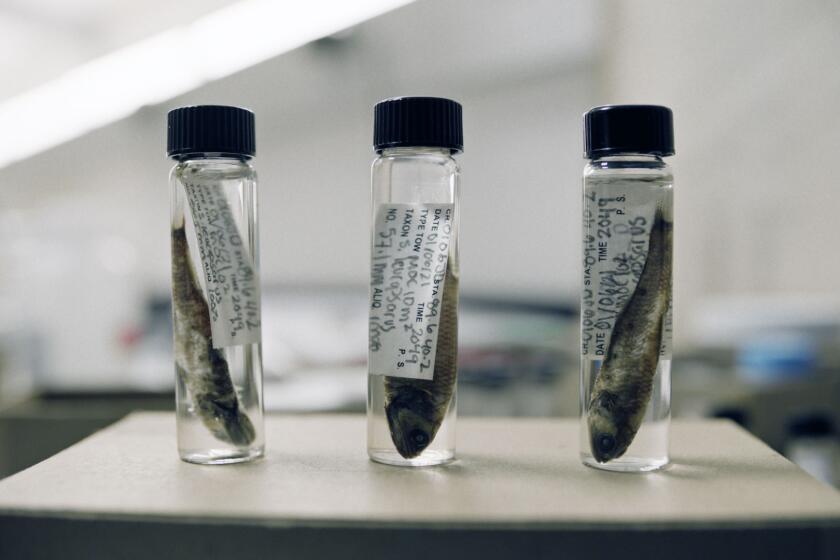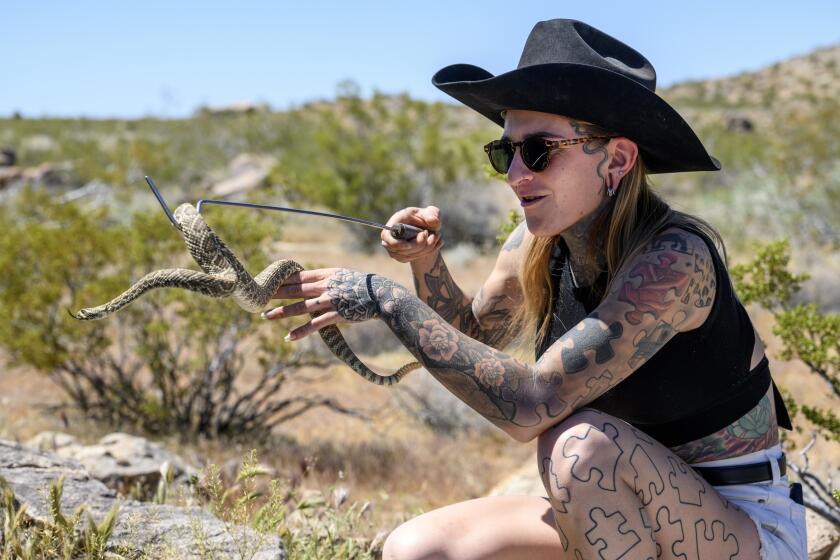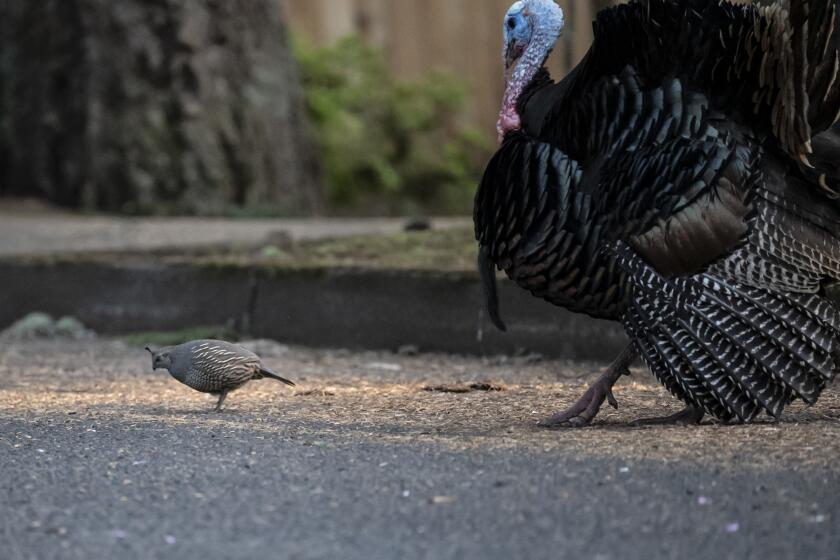A Flurry of Feline Fury Unleashed
Cats are OK.
I used to like them more before my last one got run over. Maybe it was a grief reaction, but after Spike went boots up, I decided I had a lot more against them than I thought.
For one thing, they aren’t nearly grateful enough. They’re famously disloyal, and they think nothing of unleashing their foul fluids in the least accessible parts of the house. They scratch up your arms and--in my case anyway--break your heart.
My newfound distaste for cats antagonizes one of my closest friends, a hopeless cat co-dependent. She remains staunchly loyal, for instance, to a big yellow tom named Buster, even though he comes home only when he has a nasal fungus that requires $600 worth of veterinary intervention. He also recalled his address when his ear blew up like a pillow after a fight and a gangrenous nail needed to be pulled.
The rest of the time, he prefers the accommodations down the block.
Cat people overlook the most obvious sins of their pets, yet are impossibly defensive when cats get bad press. Recently, as we sat in a theater with our children watching the pro-porker “Babe,” my cat-loving friend turned to me in disgust and hissed:
“Oh, great. Another movie that demonizes cats.”
I rolled my eyes.
How can you demonize something that’s already half bad?
*
In the popular culture, cats are almost universally portrayed as antagonistic, lazy and selfish. They’re usually hypocrites, too, ingratiating themselves with their dim-witted humans while scheming to bring down their canine rivals and eat all the mice they can get their paws on.
Disney cartoons lead the pack--”Lady and the Tramp” has those nauseatingly smug Siamese twins; “Cinderella” has a cat named Lucifer.
What would you expect? As one cat fancier puts it, “Disney has a lot invested in mice.”
Fievel Mouskowitz in Steven Spielberg’s 1986 “An American Tail” was persecuted by Cossack cats before fleeing Russia.
And even the recent “Homeward Bound,” a remake of “The Incredible Journey,” featured the voice of Sally Field as a particularly self-absorbed and unsympathetic Himalayan.
“Cats always get a bad rap in Hollywood,” says Susan Lee, who has parlayed her devotion into a mail-order business called the Crazy Cat Lady Catalogue. “It’s just like the way Hollywood never gets Native Americans or anything else right.”
The rap on cats goes beyond the big screen, however. Art Spiegelman won a Pulitzer in 1992 for his cartoon account of a family of Holocaust survivors. In “Maus,” he casts mice as Jews, dogs as Americans, and cats as--what else?--Germans.
Dogs are stereotyped, too, but never as narrowly as cats. Like actresses, dogs tend to be judged by their looks. Majestic-looking breeds are endowed with noble personalities (Shadow, the wise golden retriever in “Homeward Bound”; Lassie, the loyal collie).
Smaller dogs (Percy in “Pocahontas”) are often depicted as spoiled and selfish-- catlike, if you will.
*
Cats are cast as evil for some fairly simple emotional and historical reasons, says University of British Columbia psychologist Stanley Coren, author of “The Intelligence of Dogs.”
“Cats are not social and dogs are,” Coren says. “You can say anything to a dog and the dog gives you a look of, ‘Oh my God, you are right! I never thought of that!’ A cat doesn’t even wait till you’ve finished a sentence before turning around and giving you the tail.”
The historical basis for our antipathy toward cats is irrational and unfortunate. Cats were revered as gods in ancient Egypt, therefore, theorize historians, they were loathed by early Christians, who despised anything that smacked of polytheism or animism.
“The standard procedure when a new religion takes over is to take the gods of the old religion and turn them into demons,” Coren says.
The “detestation of the cat”--according to my source, the encyclopedia--is indeed a “Christian phenomenon” that led, during the Dark Ages and long after, to extraordinary cruelty toward the creatures, including burning, drowning and live entombing in the foundations of new buildings for “luck.”
Learning this, I confess, does awaken in me a feeling of guilt and even protectiveness toward the little creatures. But I don’t plan to bring one home any time soon.
I require pets that worship me and no cat can fulfill that need. As Coren points out, if you feed and shelter a cat, it thinks it’s a god. Feed and shelter a dog, it thinks you’re a god.
Under my roof, there’s room for just one deity: She Who Gives Wet Food and Milk Bones.
* Robin Abcarian’s column is published Wednesdays and Sundays.
More to Read
Only good movies
Get the Indie Focus newsletter, Mark Olsen's weekly guide to the world of cinema.
You may occasionally receive promotional content from the Los Angeles Times.







